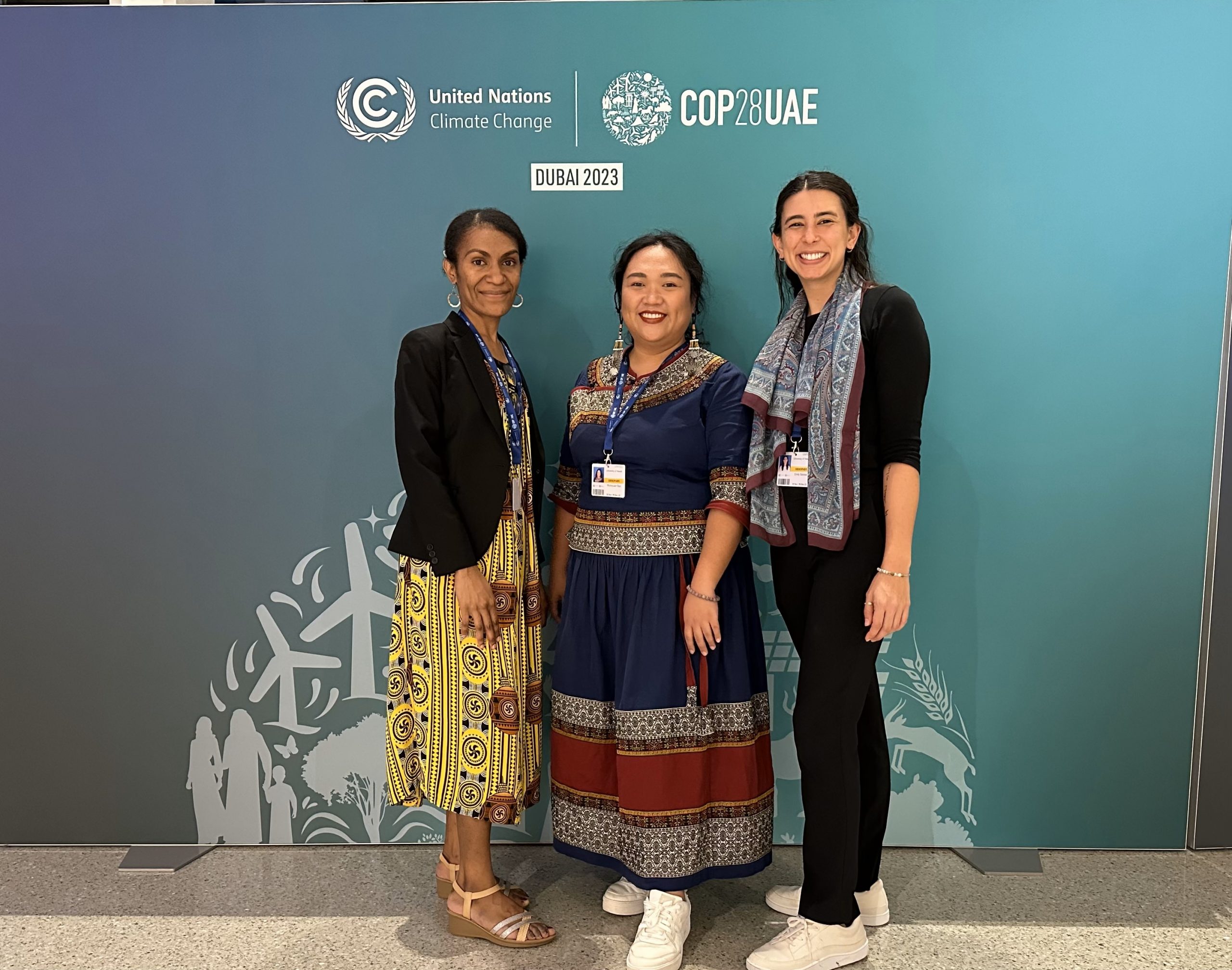
Debbie Akane, LLM with fellow ELP students Eleng Kazangiljan / Wun-Syuan Guo, LLM and Emily Sarasa ’24.
As an international student from the small island nation of Papua New Guinea, a nation, like other Pacific Island states, facing challenges in implementing a just transition to a fossil fuel free economy, my main interest in attending COP28 was to gain an understanding of high level climate negotiations and to observe how developing and small island states presented their interests at the negotiating table amidst a competing array of global interests and agendas.
A key area of interest for me was how accessible the green funds were and how robust the green finance system was in achieving the aims of the Paris Agreement 2015. During negotiations, particularly those concerning the guidance to the Green Climate Fund (GCF) and the Green Environment Facility (GEF), Small Island Developing States (SIDs) and developing countries raised issues about the ongoing challenges they faced in accessing this funding to implement their just transition programs and how stringent the requirements were. These requirements are put in place by the donor countries and, understandably so for accountability purposes. However, gauging from the discussions, this was an ongoing issue and one that was frustrating for those vulnerable states needing access to these funds. The funds (GEF and GCF) announced that they were reviewing their processes to streamline them so as to make the funding easier to access. Hopefully, there will be positive news on this at the next COP29.
Another area of interest that I had was in the mechanics of carbon trading and carbon markets, which is something that my home country is looking to properly implement as a means of conserving tropical rainforests. I attended a side event on Day 3 of COP about voluntary carbon markets (VCMs) and heard from industry leaders about how VCMs are being operated around the world, the challenges they faced, and how best to improve the system going forward. Kenya is one such country in Africa, making strides in this space. There was discussion about the role of regulation and how regulations of the VCMs should be more enabling rather than restrictive. I am looking forward to following this issue further and learning more about how VCMs compare to the market-based system of which the US has quite a comprehensive one (cap and trade) under the Clean Air Act.
As a first timer to a global UN event and certainly to a COP meeting, it was indeed a very eye opening experience. I am grateful to the Environmental Law Program, the Law School, Professors Wallsgrove and Forman and our sponsors for this memorable trip.
Debbie Akane, LLM
SM 4/2/2024
